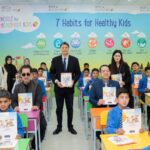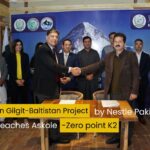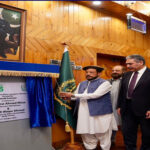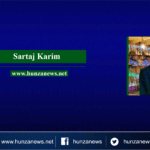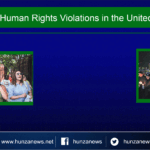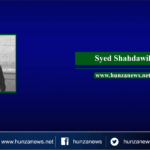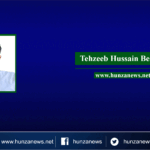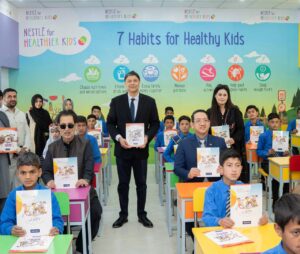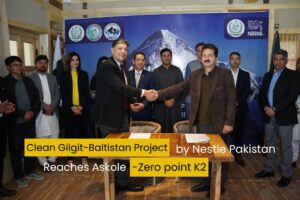SKARDU: Nargis Begum, 46, entered the room with a warm smile, holding a silver tray bearing an assortment of local specialties, including the region’s famous pink butter tea. With freshly painted henna on her hands that matched the colour of her clothes, Nargis served the tea while chatting away animatedly with everyone present in the room.
HunzaNews, September 24, 2014.
While conversing in the local Shina dialect, Nargis occasionally used words from Hindko, a language she learnt when she married into her husband’s family.
A view of Upper-Kachura Lake. PHOTO: HUMA CHOUDHARY/ EXPRESS
She pointed out that it was not unusual to marry into a different sect some years ago. “I learnt Hindko to communicate with my husband’s family and he learnt Shina, because I was born and raised in Skardu.” The couple taught their four sons and two daughters about their respective beliefs and sub-cultures.
Situated in the lap of the mighty Karakoram mountain range and awe-inspiring Deosai plains, Skardu is home to a number of diversified cultures, ethnic groups, languages and various backgrounds. Residents not only have a beautiful mix of lifestyles because of this multicultural and multilingual aspect but are also hospitable, open-minded and accommodating. Nargis’ family is a microcosmic representation of the harmonious presence of these different beliefs and cultures here.
“I could easily adapt to the new culture since I got married at the age of 16,” said Nargis, whose pensive green eyes match the turquoise hue of Sadpara Lake. Although she feels fortunate to be part of a warm and flexible family, Nargis is of the opinion that due to the pressures of modern life, children should not be married off too young and until they acquire a certain degree of maturity. At a very basic level, we should embrace our differences and believe that people should not be categorised and judged based on their religious sect and lifestyle, she added.
A father and son walk down a mountain trail. PHOTO: HUMA CHOUDHARY/ EXPRESS
In February 2012, four buses traveling to Gilgit-Baltistan were stopped on a deserted section of the Karakoram Highway and 25 Shia men and children were sprayed with bullets. There was a spontaneous outpouring of anger among people in Skardu because of this extremely tragic incident, however, religious scholars were able to successfully maintain peace and calm by proclaiming that those who react would be equally sinful. An eye for an eye never resolves issues, they said.
“Terrorism, extremism and violence, though repugnant to our religion, have of late become a disgrace to our identity,” Sheikh Mohsin Ali Najafi, a prominent religious scholar and philanthropist residing in Skardu, told The Express Tribune. In spite of low literacy rate and strong religious roots, he said, men and women both work side by side to earn their livelihood in Skardu.
Religious and cultural festivals are celebrated without any fear here. Although people live within very modest means there are no beggars to be seen in the area – it’s hard to believe but Skardu is almost a crime-free society.
The fact that the local leadership has maintained interfaith harmony in Skardu ever since Pakistan came into being is highly commendable. It’s a shining example for religious leaders elsewhere in the country in order to achieve the much needed national harmony and social cohesion.
Express Tribune

